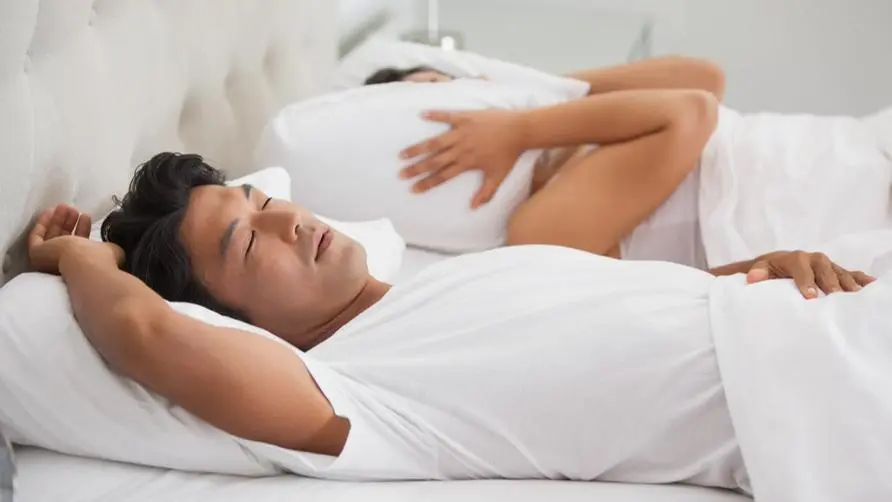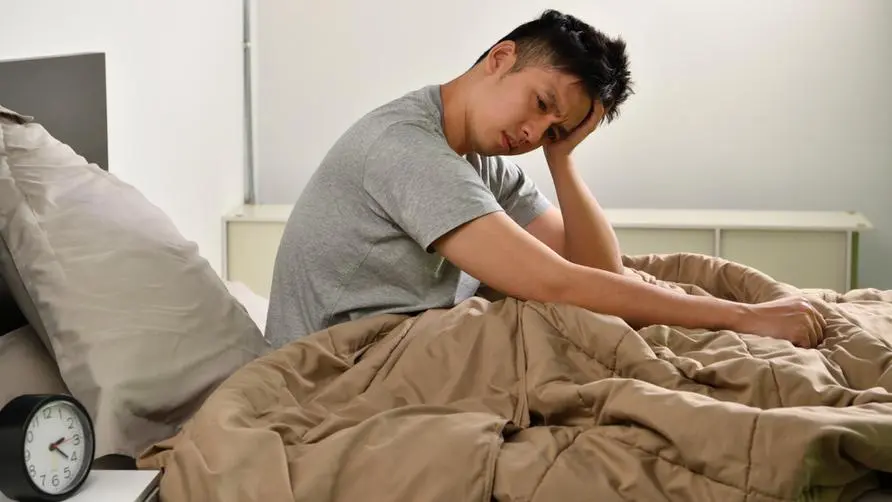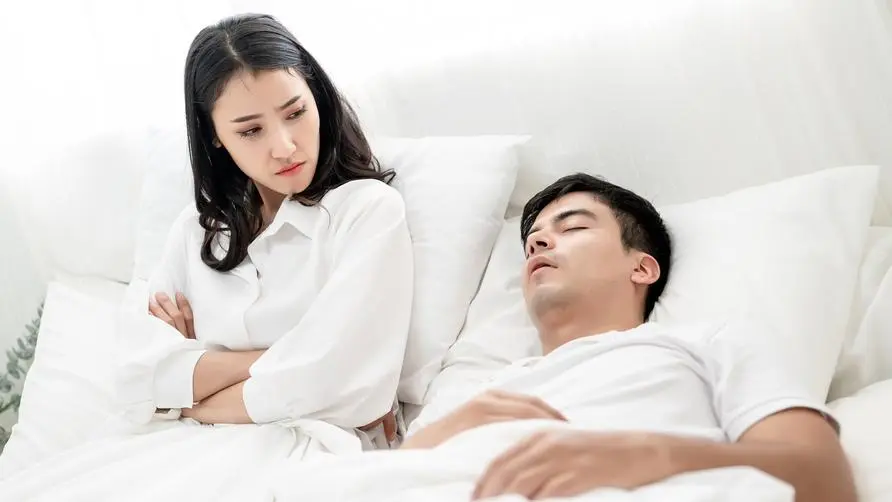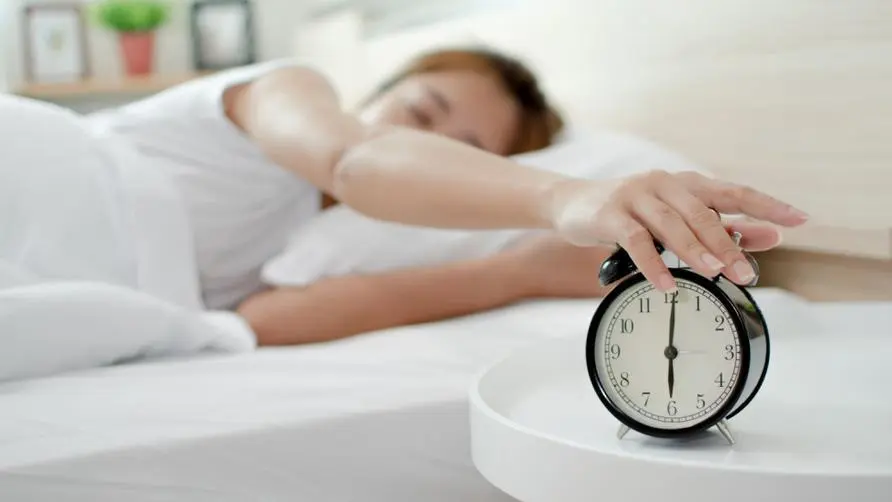Is snoring every night more likely to cause stroke or heart disease? Doctors reveal the guideline for improving sleep apnea: Do "two less things" in your life

The traffic accident rate is twice as high! Who is susceptible to sleep apnea?
If you have long-term fatigue, daytime sleepiness, light sleep and dreaminess, severe snoring, or even your partner finds you are apnea during sleep, you should pay attention to the impact of “sleep apnea” on your body! Dr. Jian Shaofu, the attending physician at the Cardiovascular Center of Cathay General Hospital, said that the disease is more likely to occur in men, middle-aged and elderly people, obese people, alcoholics, people with cardiovascular disease, people with short jaws, and patients who take sedatives, and is often accompanied by mental illness. Symptoms include concentration, headache, dry mouth, choking or wheezing while sleeping, and bad temper that is difficult to control.
Dr. Jian Shaofu pointed out that about 25% of adults suffer from some degree of sleep apnea disorder, which not only easily causes daytime sleepiness and lack of concentration, but may also increase the risk of accidents. Research shows that patients with sleep apnea are more than twice as likely to be involved in a traffic accident as the general population. Additionally, people with untreated sleep apnea may be at increased risk for cardiovascular disease, such as high blood pressure, heart failure, arrhythmia, or stroke. This risk may be due to changes in heart rate and blood pressure during sleep.
What causes sleep apnea? Can “heart failure” also affect snoring?
Dr. Jian Shaofu explained that sleep apnea can be divided into three types: “central”, “obstructive” and “mixed”: central is caused by heart failure; obstructive is caused by controlling the muscle tone of the respiratory tract during sleep. Lowers, causing the throat to become narrower and affecting breathing. The mixed type is a combination of central and obstructive sleep apnea.
Suspension of breathing will cause the concentration of oxygen in the blood to decrease and the concentration of carbon dioxide to increase. When the imbalance is severe, it will stimulate the brain to wake up the patient and increase the number of breaths to improve the imbalance of oxygen and carbon dioxide. Many patients with sleep apnea are unaware that their sleep breathing is abnormal, leading to increased sleep interruptions, fatigue and daytime sleepiness.
Clinical diagnosis of sleep apnea? Does the test require “going to the hospital and staying overnight”?
As for clinical diagnosis, you can refer to the “Apnoea Index” (the number of respiratory arrests per hour): less than 5 times per hour is normal; 5-15 times per hour is mild; 15-30 times is moderate, and more than 30 times is For severe. In addition, people can also further arrange “sleep multiple physiological examinations” to diagnose whether they are indeed suffering from sleep apnea.
Dr. Jian Shaofu said that standard sleep multiple physiological examinations require patients to sleep in a sleep laboratory for one night and record physiological signals during at least 6 hours of sleep. It is necessary to record electroencephalogram, electromyogram and electrooculogram to distinguish the patient’s sleep stage, and also record snoring sounds, heart rate, respiratory airflow, chest and abdominal rise and fall, blood oxygen concentration, body posture, leg electromyography Signals such as images detect breathing, limb twitching or other disorders that occur during sleep.
In addition, people can also use home monitoring devices to monitor breathing, blood oxygen saturation and heart rate. This alternative may be considered if a doctor strongly suspects moderate or severe sleep apnea.
What treatments are available for sleep apnea? Doctors urge patients to do “two things” less
Dr. Jian Shaofu said that the treatment goal of sleep apnea is to keep the airway open during sleep and reduce risk factors. Effective treatment will eliminate sleep disorders and improve the risk of cardiovascular disease. Here are several possible measures for patients’ reference:
Continuous positive pressure respirator. Use the air pressure generated by a positive pressure respirator to maintain a smooth respiratory tract during sleep, and can be used at home after learning. Wearing an appropriate mask is very important so that lack of comfort will not reduce the willingness and effectiveness of the treatment.
Surgical treatment. For patients with obstructive sleep apnea, surgery is another possible option and can be used in conjunction with other non-surgical treatments. Including reshaping of the upper respiratory tract structure, suspensory velar pharyngeal plastic surgery, maxillary and mandibular advancement surgery, etc. Treatment goals, expected results, and potential complications should be discussed with your physician before treatment.
Dr. Jian Shaofu emphasized that if the patient is obese or overweight, weight loss will be helpful to relieve symptoms. Patients should achieve weight loss through improved eating habits, exercise or surgical treatment. In addition, alcohol and sedatives should be avoided in daily life, as they can worsen drowsiness and increase the risk of accidents. People who are taking anti-anxiety medications or sedatives to sleep should check with their healthcare practitioner about the effects of their medications on sleep apnea.
Finally, Dr. Jian Shaofu appealed that cardiovascular disease risk factors will increase the incidence of sleep apnea, and sleep apnea will also increase the incidence of cardiovascular disease. Early recognition and good control of risk factors can not only improve the quality of life, but also reduce long-term mortality. It is recommended that people should receive early treatment if they experience related symptoms to alleviate the risk of cardiovascular disease and sleep disorders.
Further reading:





